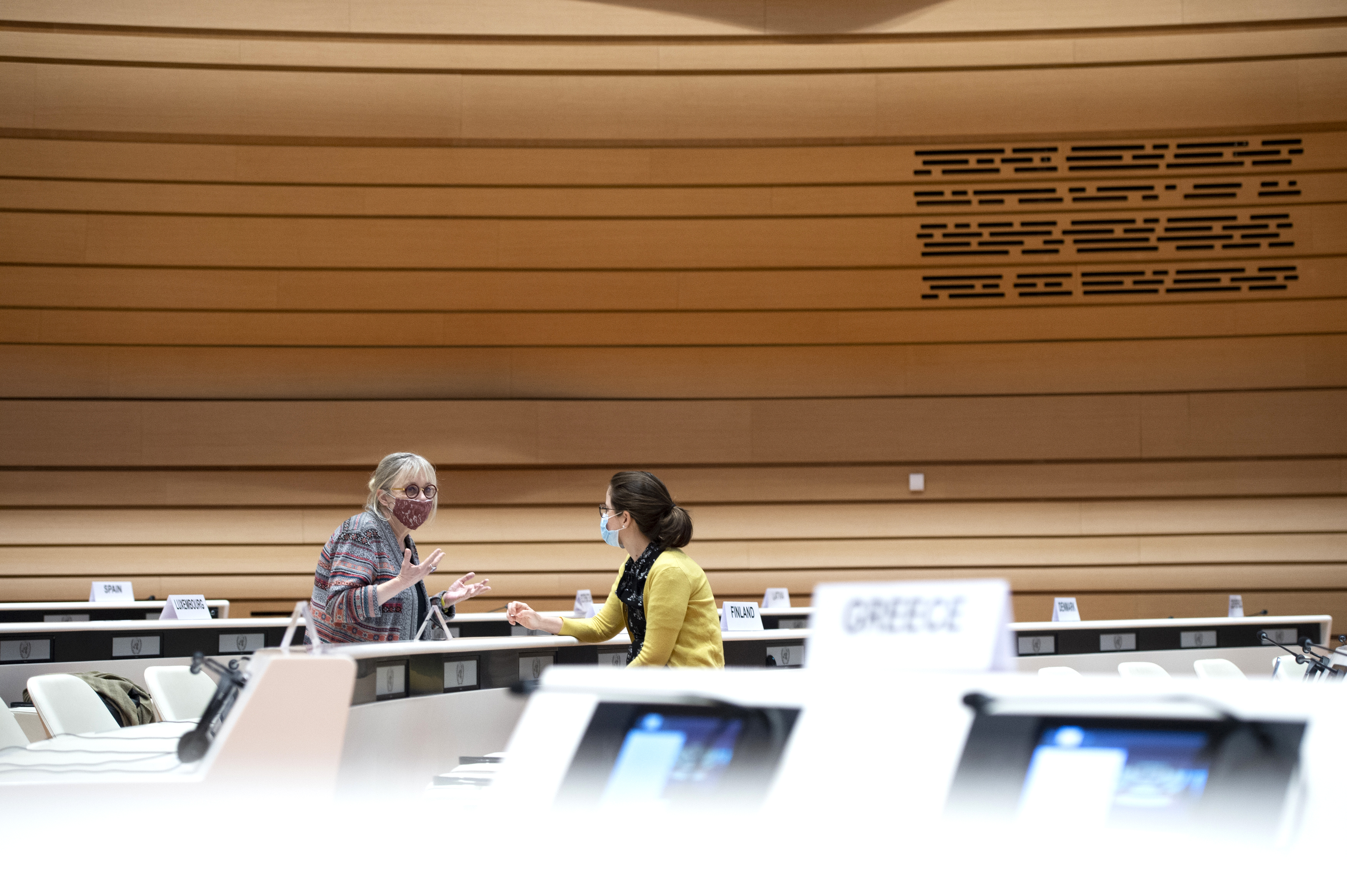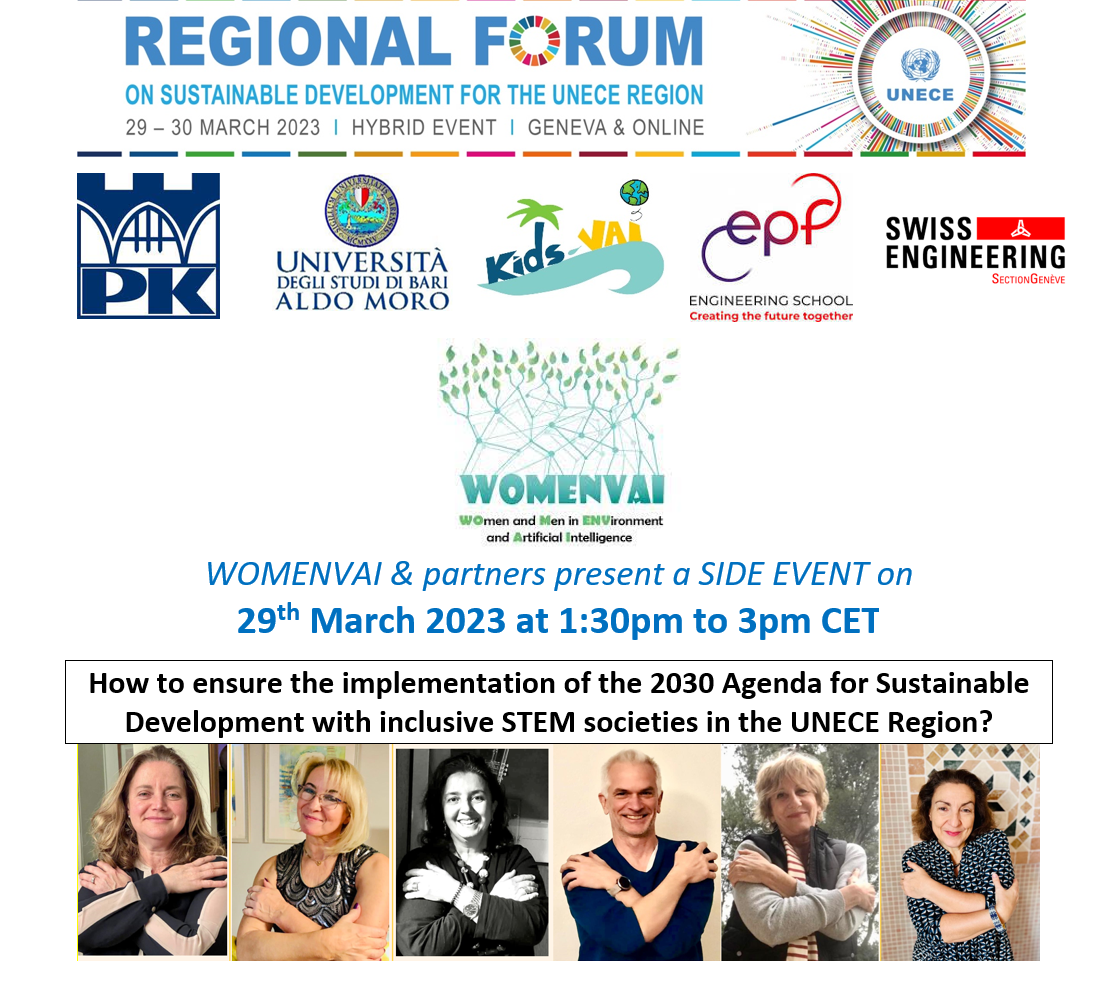Background
Women account for 30 % of scientists in Europe when research shows that gender mixity is boosting creativity and leadership of companies and yet EU has almost achieved gender parity among doctoral graduates: in 2018, women represented 48.1% of doctoral graduates at the European level and the proportion of women among doctoral graduates was gender-balanced in the majority of EU-27 and Associated Countries. Despite this progress, important gender gaps persist in specific broad fields of study. (She Figures report 2021). To achieve the implementation of the 2030 Agenda for Sustainable Development with inclusive STEM societies in the UNECE Region, we need to foster Gender Action Plans, in line with the EC policies, to take concrete measures and actions to strengthen gender equality in STEM areas. Case studies and practical experience conducted in various European countries were presented.
WOMENVAI; Swiss Engineering Geneva, Switzerland; University of Cracow, Poland; University of Bari Aldo Moro, Italy; BusinessAsNature, Portugal; EPF School of Engineers, France



